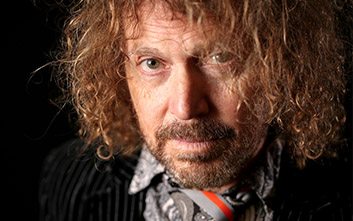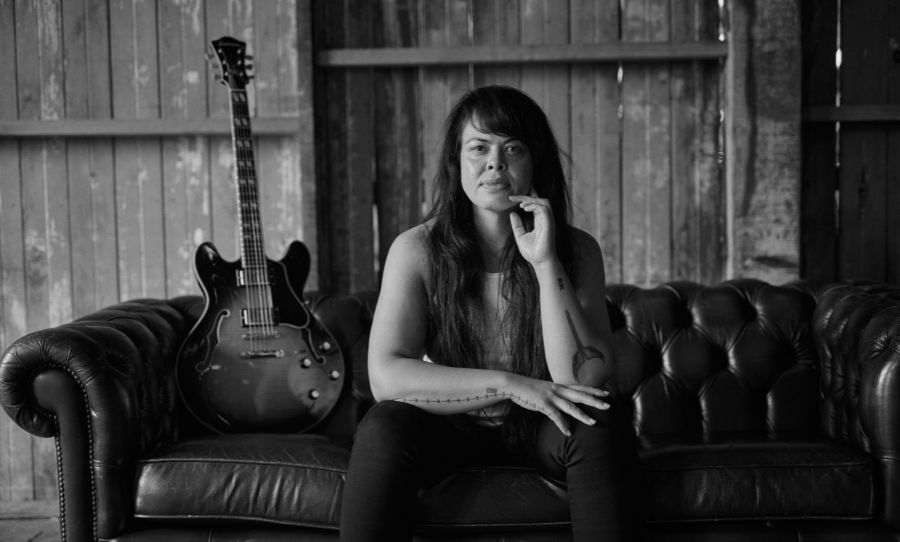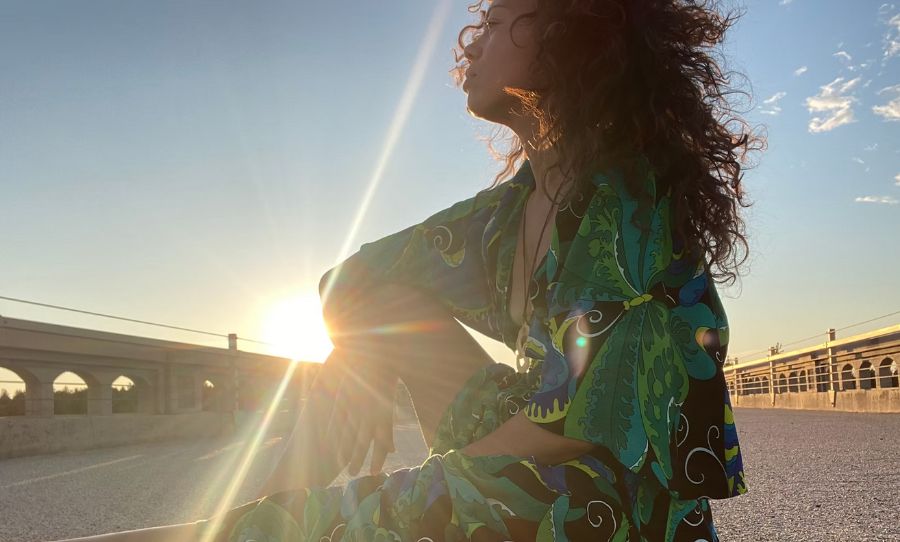Kim Salmon is a man with credentials longer than a Woolies receipt. Called the man who brought grunge to Australia by some, his past projects include The Scientists, Beasts of Bourbon and The Surrealists.
Ahead of a somewhat off-kilter mixed media performance at the Factory Theatre, we caught up to chat Perth, the show, and Salmon’s latest solo album My Script.
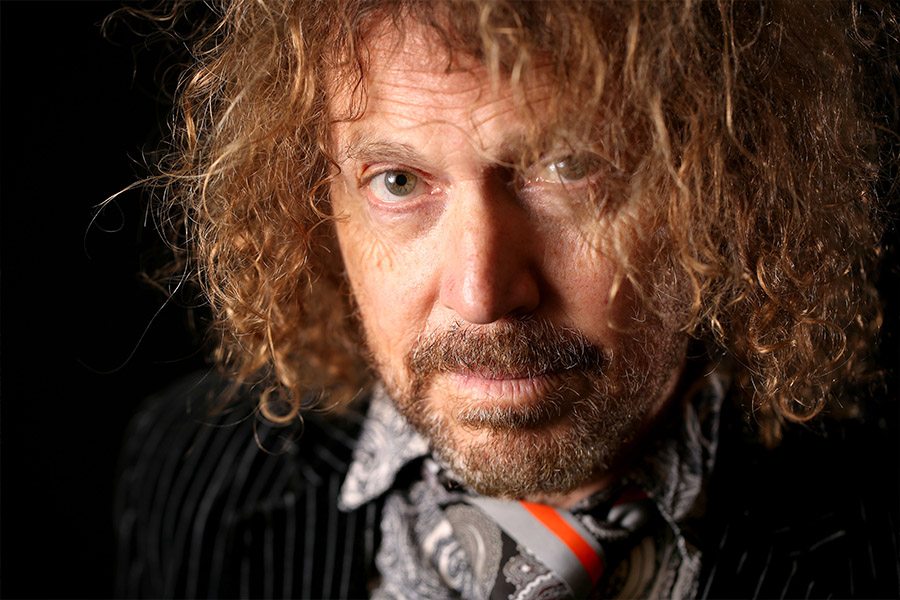
From consequential drum machine accidents to a life-breaching DIY attitude, the philosophy of Kim Salmon is something special to behold.
HAPPY: Hey Kim, what’s up? What are you up to right now?
KIM: Been getting into some painting – big canvasses, semi figurative things in acrylics. Also I’ve been writing some new tunes. This lot are all acoustic with a leaning towards British folk from the ’60s and ’70s.
HAPPY: I just gave My Script a spin, I really loved the story of using an unplugged lead’s feedback as a vocal accompaniment. Were there any other studio tricks that came into that record? Intentional or otherwise…
KIM: There’s always studio tricks that come up on any record. It’s one of the things about recording that make it so rewarding. One of the happy accidents on this album was playing along to the 808 phone app at 120 bpm on the track SignApps. I found that the clock in (producer) Myles’ living room played triplets perfectly in time to it, which when you think about it is obvious – a clock goes tick tock over the course of a second. 120 bpm is of course two beats in every second. Manipulating found sounds like footstomps and hitting a toy piano into a ‘drum’ loop for Animal Man was another studio trick.
its SOdiSTOPic used exactly the same drum program as SignApps and both songs evolved from the same starting point. This song however was like a failed experiment at least half a dozen times and was the last song to be completed. Somehow I cracked it with the final set of lyrics. It’s the most layered track of the album. It’s up there as a favourite of mine as it couldn’t have occurred any other way but is completely different to anything else I’ve ever done.
Most songs on the album came into existence with the use of studio tricks by the necessity of being, for the most part, the sole player.
[bandcamp width=700 height=472 album=1677168080 size=large bgcol=ffffff linkcol=333333 artwork=small]
HAPPY: You mention that being free of other musicians on the recording eliminates a lot of compromise, but I think a lot of people would disagree with that mentality. Why was it such a big factor on My Script?
KIM: I don’t feel the need to justify playing on my own any more than I would playing with other people. The opportunity that allowed me to make the record didn’t really afford me getting players for the most part (I actually did manage to on a couple of tracks). Naturally I had to use everything available to talk the situation up as crowd funding and promotion dictated this.
HAPPY: That being said, I do love the drum machine and app work. What did you like about working with them?
KIM: It was really just a phone app of an 808. It was really just the idea of using something as readily available and cheap as an app that appealed to me. I guess that is very DIY.
HAPPY: You’re not based in Perth, you ‘got out’, but I still want to ask about it. Some say that Perth drains the creativity right out of you, some say that its isolation forces creativity… which side are you on?
KIM: I think if you have ideas to get out you’ll be driven to do that regardless of the environment. I’m on both sides. I think environment can shape ideas but I also think that creativity is separate from the environment.
HAPPY: How has your opinion of Perth changed over your career?
KIM: I think I’m much more likely to (and do) spend time in Perth and enjoy it these days, than at any other time since I ‘got out’. I’ve mellowed out, Perth has become much more integrated with the rest of the world due to the internet and I have most of my family there.
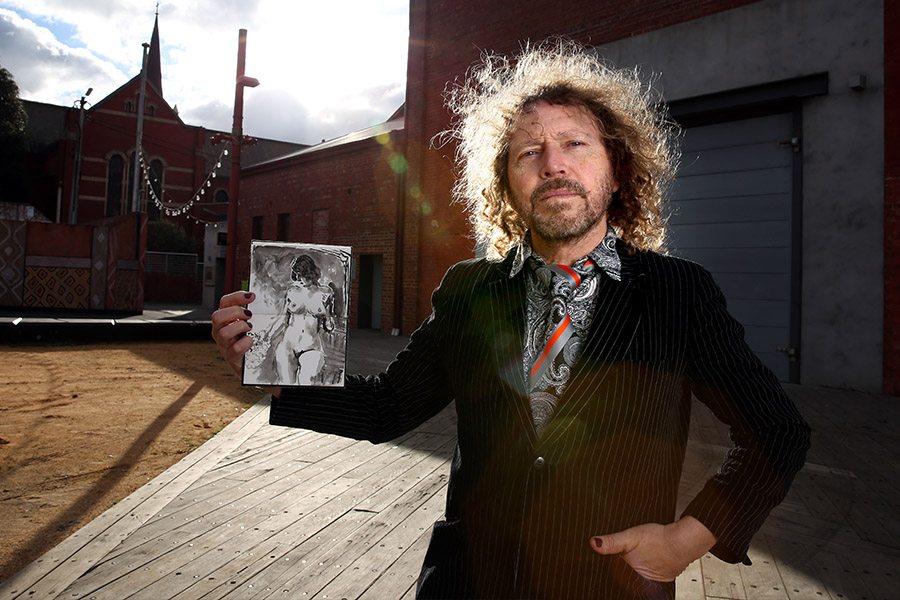
HAPPY: You seem very open, in life and in your music. Is keeping everything unfiltered important to you? Why?
KIM: I think in my case its more a matter of being open to opportunities than keeping things unfiltered. It is very important to be adaptable to survive, and all I see that I’ve done is become adaptable in order to survive in the arts.
HAPPY: Is that the philosophy of your upcoming show Salmon for Breakfast, too?
KIM: It’s really Doug Galbraith’s show to me – but it is about the situations that led to him writing a book about me and that, of course, is a story about taking advantage of an opportunity so I’d have to say yes, that is the philosophy behind Salmon For Breakfast.
HAPPY: Why did you feel like it was important to sign on Jaimie Leonarder for the gig?
KIM: Look, it was suggested by an outside source (the bass player actually) and he seemed a perfect fit to Doug and I. If anything I think Jamie’s credentials put mine to shame a bit so maybe it’s not so important to be using him ha ha!
HAPPY: How will the show differ to, say, the Scientists tour later in the year? Apart from the decibels.
KIM: Its not really a ‘gig’. Its more a mixed media event – slide show/art exhibition/spoken word. Everything I say is from a script and the narrator talks far more than in this.
Salmon for Breakfast is taking place this Wednesday 22nd, 8pm at the Factory Theatre in Marrickville.
Grab any extra info, and your tickets, right here.
